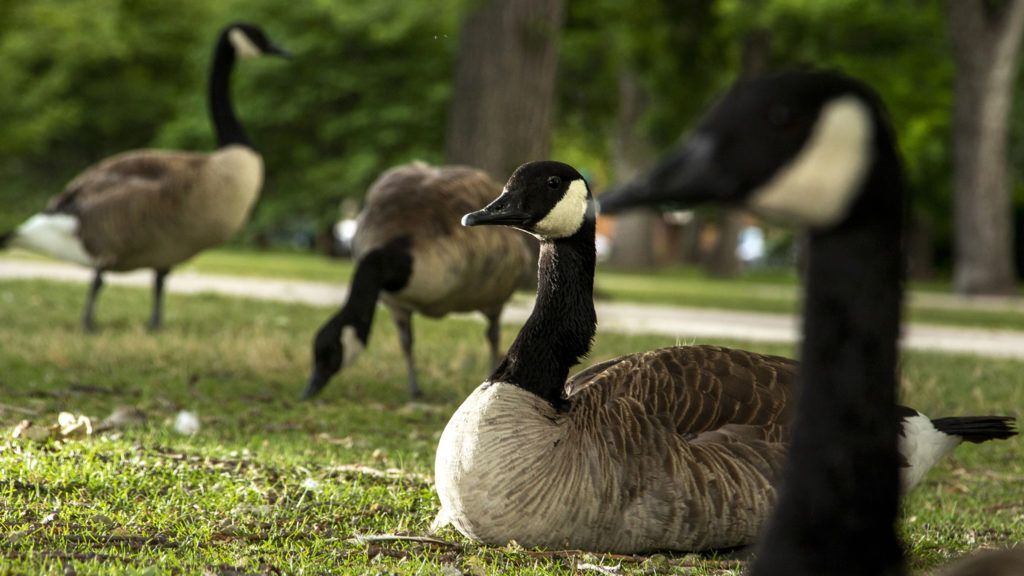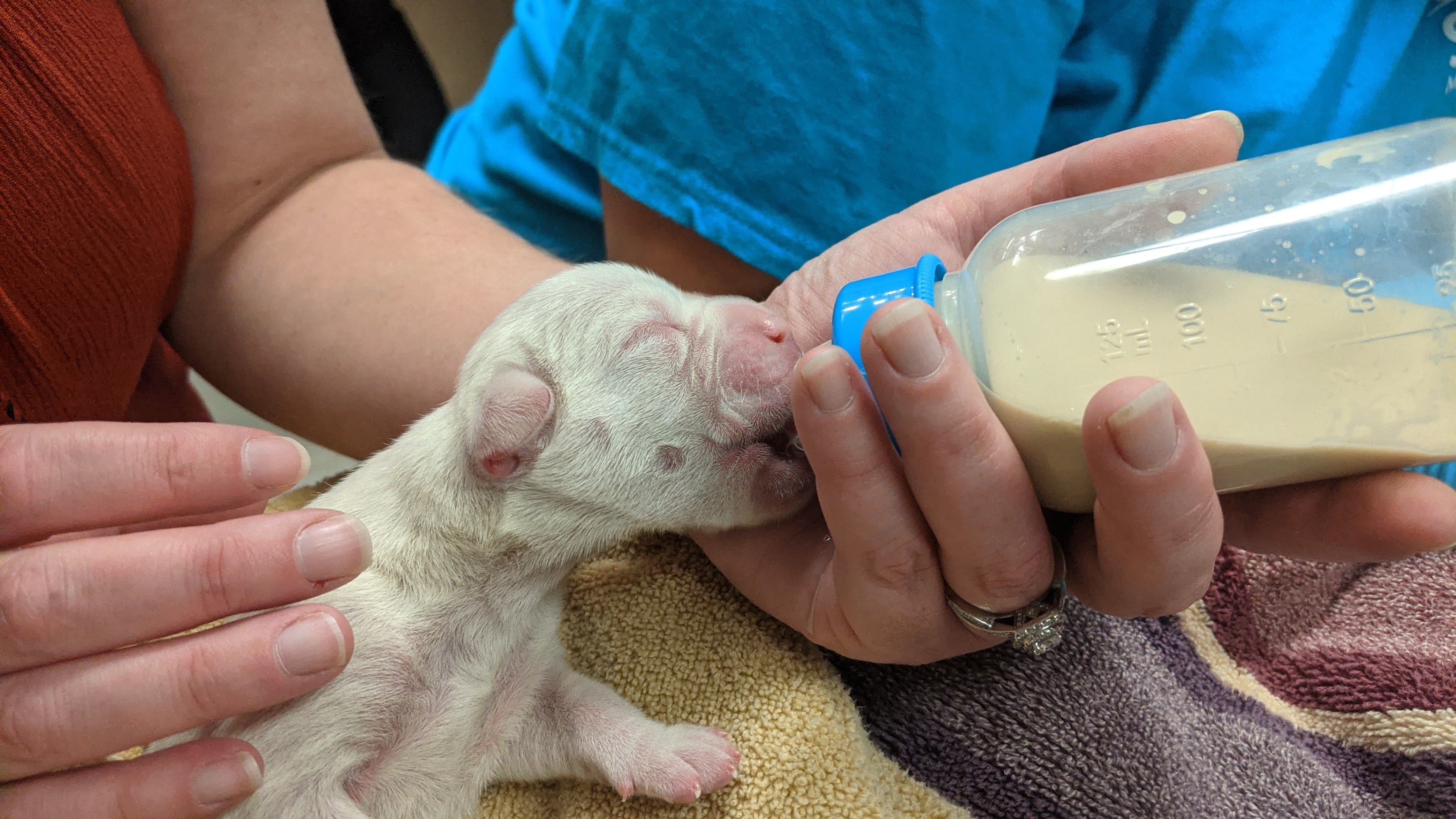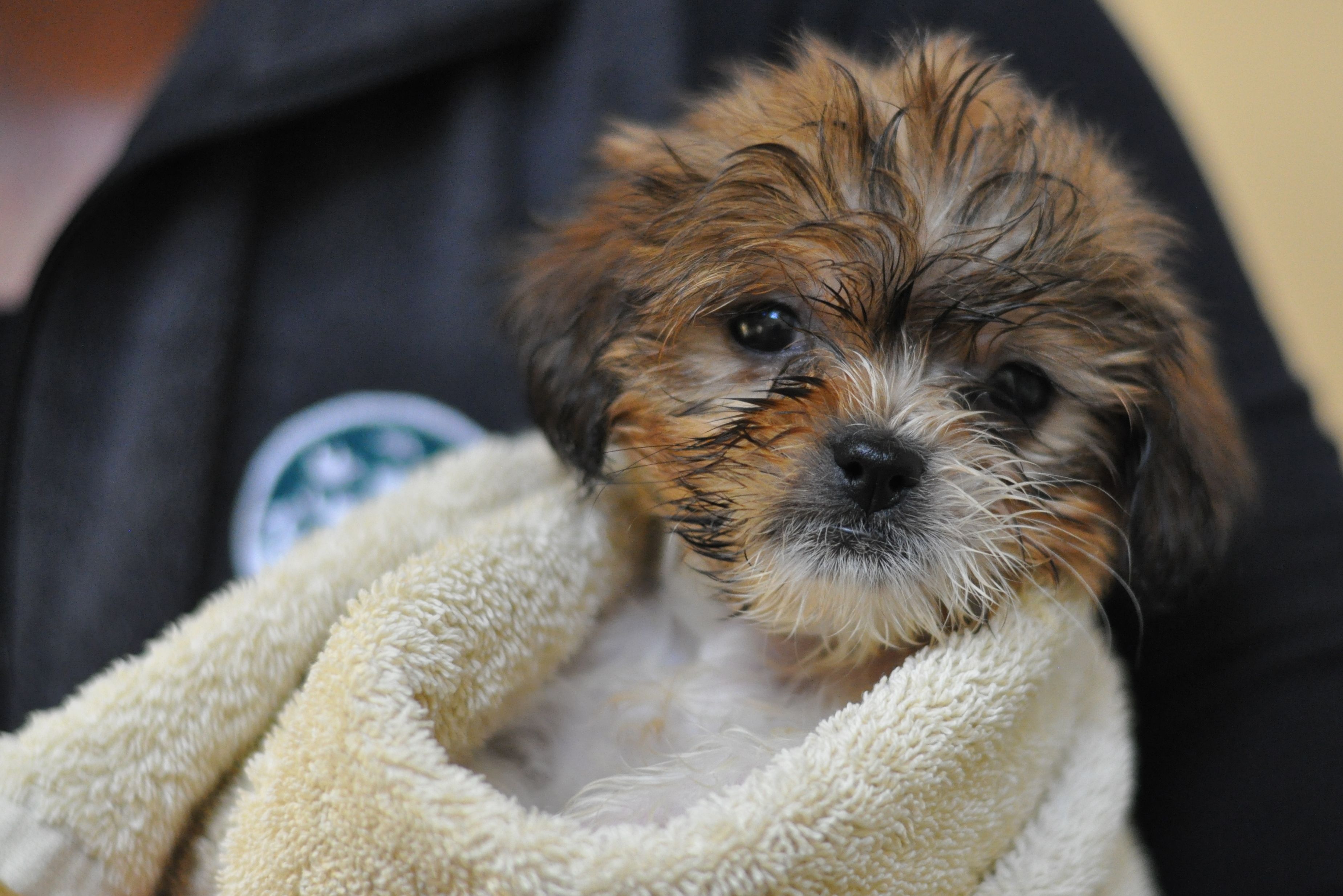HPAI

Highly Pathogenic Avian Influenza
On July 14, 2022, California Department of Fish and Wildlife (CDFW) announced the first detection of avian influenza H5N1 in California. The virus was detected in two Canada geese and one American white pelican in Colusa and Glenn Counties.
Highly pathogenic avian influenza (also known as HPAI or bird flu) is a virus that is naturally spread among wild aquatic birds worldwide (such as ducks, geese, and shorebirds) and can infect domestic poultry (such as chickens, turkeys, and pheasants) as well as other bird and animal species. In early 2022, the Eurasian H5 strain of HPAI was detected in the United States.
Now that the virus has reached Monterey County, we are taking measures to prevent the spread of the virus at our facility. These implemented protocols include isolated exam areas, increased personal protective equipment, quarantining high risk species, and various other protocols to ensure the health of all wild animal patients.
SPCA Monterey County is asking the public to:
- Call us at 831-264-5427 if you see animals exhibiting HPAI symptoms. Infected birds may not always display obvious clinical signs, but possible signs include neurologic and respiratory symptoms. Please do not bring birds to our Wildlife Center without calling us first.
- Call California Department of Fish and Wildlife at 831-649-2870 if you find deceased wild birds.
- Wear gloves and face masks and thoroughly wash hands if handling an animal can not be avoided.
- Keep your avian pets safe. While this virus is active in Monterey County, we will accept owner-surrendered exotic birds, chickens, and waterfowl by appointment only. We can also offer free food, supplies, and caging to help you keep your pets. Thank you for your patience and understanding while we work hard to keep the rescued pets and wildlife in our care safe.
How to protect yourself and your domestic animals:
- Do not touch or handle any bird that appears sick or deceased.
- Prevent contact between wild birds and your domestic animals, including shared food or water.
- Wear gloves and face masks and wash your hands if contact with wild birds or domestic poultry cannot be avoided.
- Bird owners should review their biosecurity activities to assure the health of their birds. More information is available through the California Department of Food and Agriculture.
Frequently Asked Questions:
What is avian influenza?
Highly pathogenic avian influenza (also known as HPAI or bird flu) is a virus that is naturally spread among wild aquatic birds worldwide (such as ducks, geese, and shorebirds) and can infect domestic poultry (such as chickens, turkeys, and pheasants) as well as other bird and animal species.
What’s happening with the outbreak in the U.S.?
In early 2022, the Eurasian H5 strain of HPAI was detected in birds in the United States.
According to data compiled by the U.S. Department of Agriculture (USDA), avian influenza H5N1 has been detected in at least 1,825 individual wild birds in 42 states and the District of Columbia since January 2022. The virus has been detected in multiple apparently healthy waterfowl, as well as in sick and dead waterfowl and other wild birds. Non-waterfowl species with confirmed infections have included bald eagles, vultures, hawks, owls, gulls, pelicans, herons, and shorebirds. Learn more from the USDA and the CDC.
Has HPAI reached California?
Yes. On July 14, California Department of Fish and Wildlife (CDFW) announced the first detection of avian influenza H5N1 in California. The virus was detected in two Canada geese and one American white pelican in Colusa and Glenn Counties.
How is the virus spread?
The virus is shed in bodily fluids such as respiratory droplets, saliva, and feces. Transmission may occur directly from bird to bird, or indirectly through people, animals, or objects contaminated with virus particles (e.g., dogs, rodents, insects, feathers, feed, water, clothing, footwear, vehicles).
How does HPAI affect wild animals?
Although avian influenza viruses naturally circulate among waterfowl, the strain of H5N1 currently in circulation in the U.S. has been causing illness and death in a higher diversity of wild bird species than during previous avian influenza outbreaks. Infected birds may not always display obvious clinical signs, but possible signs include neurologic and respiratory symptoms.
Wild bird species at highest risk of infection with HPAI viruses include waterfowl (swans, geese, ducks), waterbirds (gulls, terns, cranes, herons, shorebirds), and birds that prey or scavenge on these species (eagles, hawks, falcons, corvids, vultures). Infection among songbirds, including many common backyard birds, appears to be rare.
How does HPAI affect domestic animals?
The H5N1 strain is highly contagious in poultry and causes significant mortality. Birds raised in captivity, such as other gallinaceous birds (turkeys, pheasants, grouse, quail) and waterfowl (ducks, geese, swans), may also be at high risk of acquiring and transmitting the virus. The risk of mammals (i.e. dogs and cats) being infected is very low. More information is available through the California Department of Food and Agriculture.
Can humans contract HPAI?
Yes, but infection of people is rare. According to the U.S. Centers for Disease Control and Prevention (CDC), the public health risk associated with these avian influenza detections remains low. Bird flu outbreaks are largely an animal health issue.
As of April 28, the CDC had tracked the health of more than 2,500 people with exposure to H5N1 virus-infected birds and only one case of infection has been found in the United States.
What should I do if I find a sick or injured animal?
Please call our SPCA Wildlife Center before handling or touching any wildlife at 831-264-5427.
If handling an animal can not be avoided, both gloves and a mask should be worn. Hands should be thoroughly washed immediately after handling the animal.
To help prevent transmission, any cardboard boxes or laundry (towels, blankets, etc.) brought in with an animal can not be returned. Containers made of non-porous material will need to be disinfected for 10 minutes prior to being returned.
Who should I contact if I find a dead bird?
Sightings of dead wild birds may be reported to California Department of Fish and Wildlife at 831-649-2870.








